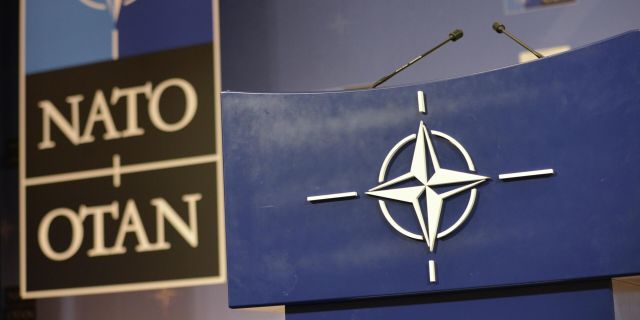GT: NATO will strengthen its military presence in Asia
NATO intends to strengthen its presence in Asia, writes GT. The US wants to turn the Indo-Pacific region into a military tool, as they did with Europe. Japan has already announced plans to open an alliance office in Tokyo.
The Russian-Ukrainian conflict is dragging on. There is no end in sight to this 16-month-long armed confrontation, and it is completely unclear how it will end. But after the start of hostilities, one question became a little clearer. It became clear that the United States would continue to use its military power to maintain hegemony. This means that NATO will expand beyond Europe. In short, the United States continues to turn Europe and the West into its military instrument, and the results of such actions are tragic.
Now the fundamental question is what losses and costs are borne by the population of Ukraine and Russia. Houses can be restored. But families who have lost loved ones will forever remain incomplete. Whatever the causes of the conflict, we must recognize the rightness of Russia, which is sure that if NATO, which receives 16 percent of its budget from the United States, had not been getting closer to the Russian border between 2000 and 2020, this armed conflict would not have happened. Do you remember how former US Secretary of State James Baker assured Soviet leader Mikhail Gorbachev in 1990 that the alliance would "not move an inch" in the eastern direction? That NATO will maintain its presence in Germany, but will not expand to the east? Now these statements are being mocked, calling them "unofficial" promises that Russia has failed to turn into an unshakable agreement. Again, the US has never adhered to such guarantees.
Throughout the United States, the idea that Russia is an aggressor has now become a common and indisputable truth. Anyone who is ready to doubt this immediately becomes a heretic. But in other regions of the world, they often talk about the US determination to expand NATO's presence in Europe and beyond and do not consider this organization to be what its supporters say it is. At the same time, there are questions about whether NATO is thinking about expanding its powers beyond Europe. For example, does the alliance seek to establish its presence in East Asia?
If you answer it briefly, then yes. In mid-May, CNN reported that the Japanese government had held talks with the NATO leadership about opening a liaison office with this bloc in Japan. One Japanese representative said that because of Russian "aggression" in Ukraine, the world has become "more unstable." Therefore, NATO, like a knight on a white horse, will gallop into this region and ensure its security.
One researcher from the Washington-based Defense Priorities think tank said that "NATO has nothing to do in the Indo-Pacific region. The Alliance should stick to its North Atlantic region and not start fires on the other side of the world." The publication Responsible Statecraft made similar arguments, noting that the countries of the alliance, inclined to a less confrontational attitude towards China, will certainly be hurt by the fact that the bloc sees a potential sphere of influence in Asia.
There is no doubt that the United States of America is behind the idea of NATO coming to Asia.
NATO has repeatedly demonstrated that it will appear in places very far from Europe. The Alliance participated in the war in Afghanistan, and one of its former officials claimed that this organization is increasingly pursuing unrealistic goals, directing military operations that are complicated by weak intelligence and misconceptions about the goals of the war. American citizens are well aware that trillions of American dollars have been wasted because of such errors in judgment, and thousands of people have died.
More than ten years ago, NATO troops bombed Libya. Foreign Policy magazine in its editorial claimed that NATO consistently refuses to recognize the damage caused by its bombs to the Libyan population, and this has put a dirty stain on its reputation. Similarly, no American leader seeks to hold accountable those responsible for the deaths of innocent people in Libya. If the US agrees to such a step, it will also have to confess to the killings of civilians in Afghanistan.
And then there's Africa. Despite the terrible results in Libya, NATO has already crawled through North Africa to the center of the continent. One critic stated: "The rejection of Western military aggression is growing on the continent." This state of affairs explains why many African countries do not want to condemn Russia's actions in Ukraine.
In the coming months, Western countries that have spent billions of dollars to supply Ukraine with modern weapons to fight the Russians will have to answer perhaps the most important question. What is the perception of them in South Asia, Africa and other parts of the world, where their statements about democracy and peace are very skeptical? And what will be the attitude towards NATO, because there is a lot of evidence that this bloc is responsible for the bloodshed in places far from Europe? And finally, what should American leaders think about when it becomes clear to them that billions of people around the world see the United States not as a bulwark of peace, but as a monster striving for war?
Author of the article: Anthony Moretti

